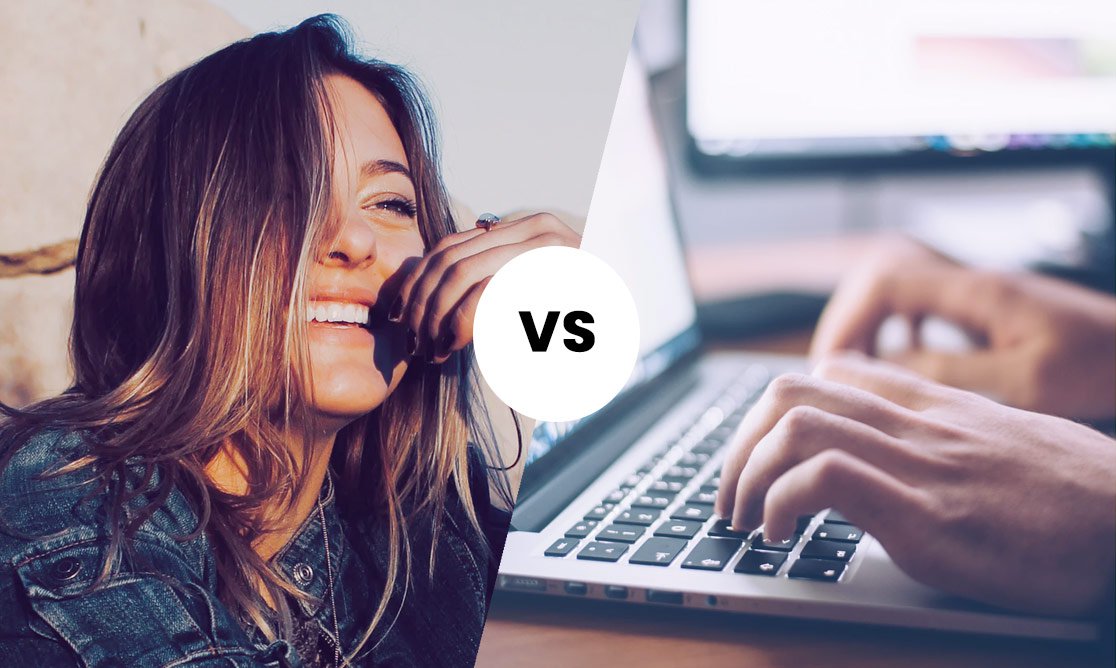- Are you looking to borrow money but can’t decide between an overdraft or a personal loan?
- Overdrafts can offer you coverage for times when your bank balance might be low and provide extra money to help manage your cash flow.
- Personal loans provide you with a lump sum of money and can help you consolidate debt, but accessing them could be more complicated.
Whether you need extra money to cover an unexpected bill or pay for a holiday, deciding between a personal loan and an overdraft facility is challenging.
Since there are pros and cons to each, read on to find out what your options are before deciding which is best for you.

In this guide
Personal loans
A personal loan is a fixed amount of money you can borrow, generally for personal purposes, and pay back over a fixed amount of time. A loan could be a good option if you need funds for a larger purchase, such as a new car, or to consolidate existing debt.
How it works
A typical loan enables you to borrow a fixed amount of money, usually between $1,000 and $25,000, although some lenders could give you the possibility to borrow up to $50,000 or more. You then repay the amount in instalments with a fixed or variable interest rate.
Types
- Secured loans. Suitable if you want to borrow more than $25,000 and have assets to use as collateral. Some personal loans, such as car loans, allow you to use the newly purchased asset as security.
- Unsecured loans. These loans don’t require any collateral, but the maximum amount you can borrow is usually lower than $25,000. Interest rates are typically higher than those for a secured loan.
- Variable loans. The interest rate changes based on an underlying benchmark or index. Thus, the amount you have to pay each month can vary, for example, if the RBA cash rate changes.
- Fixed loans. The interest rate doesn’t change throughout the loan term, and you’ll pay the same amount each month.
Features
- Flexible tenure and end-use.
- Minimal documentation.
- Quick disbursal, often within 24 hours.
- Redraw facilities available on variable loans.
- Lower interest rates compared to overdrafts.
Costs
Personal loans have low interest rates, generally between 5% and 10% depending on the type of loan and loan term.
Credit score impact
Personal loans will show on your credit report and can help you build your credit history as long as you don’t miss the payments.
Pros and cons
Pros
- Relatively accessible, especially if you have good credit.
- You can borrow more than you can with a typical overdraft.
- Ideal for debt consolidation or larger purchases.
Cons
- May require collateral, e.g. a car or other asset you own as security.
- It can negatively impact your credit score if you miss a payment.
Overdrafts
An overdraft is an unsecured line of credit linked to your current bank account. The facility allows you to borrow money through your bank account, up to a certain limit, with no set repayment date. Overdrafts are a good option for managing short-term cash flow shortfalls.
How it works
Overdrafts are lines of credit agreed with your bank that allow you to borrow money up to an agreed limit. The limit usually varies between $500 and $2,000, and you will only pay interest for the money you use. For instance, if your overdraft limit is $500, but you only use $50, you will only pay interest on $50.
Overdrafts don’t have a set repayment date, but the sooner you pay back, the lower the interest you’ll pay.
Features
- Flexible end-use
- Instant access to funds
- Some banks offer interest-free overdraft facilities
Costs
Overdrafts are more expensive than personal loans, with interest rates between 14% - 25% p.a. You may also have to pay monthly administration fees.
Credit score impact
Overdrafts are generally linked to your bank account and appear on your credit report. Closing a bank account with an overdraft facility could impact your credit score.
Pros and cons
Pros
- Instant on-demand access to money with no application once your overdraft facility has been agreed.
- No repayment term, giving you flexibility.
- You only pay interest for the money used rather than the entire amount of credit you can use.
Cons
- Lower credit limits mean it’s more useful for smaller, short term needs.
- High interest rates compared to a personal loan.
Comparison
| Requirement | Personal loans | Overdrafts |
|---|---|---|
| Extra money to help manage cash flow | No | Yes |
| Money to make a larger purchase | Yes | No |
| Debt consolidation | Yes | No |
| Coverage for low bank balance | No | Yes |
Conclusion
Both personal loans and overdrafts give you access to extra money to use for personal purposes. However, like so many personal finance questions, choosing between them comes down to your needs. Personal loans are generally more suitable if you want to make a larger purchase. If you need money for emergencies and to help manage cash flow, then an overdraft could be right for you.

